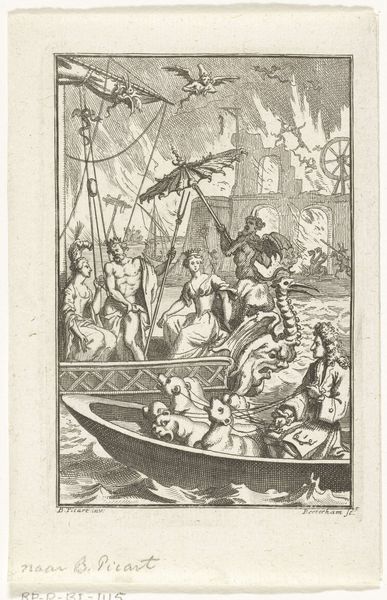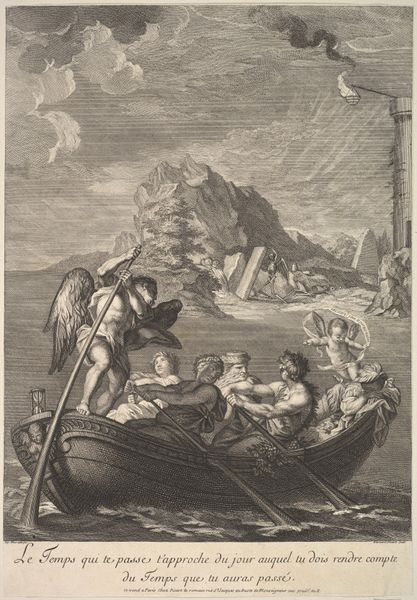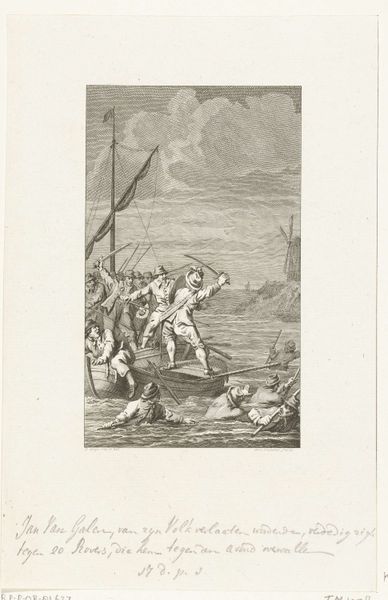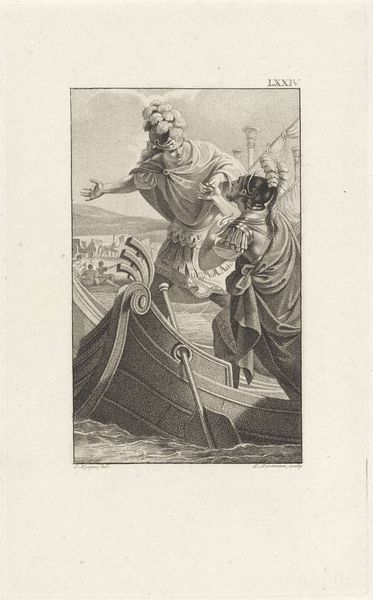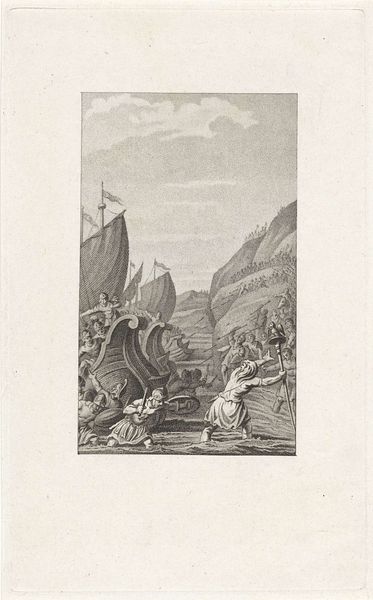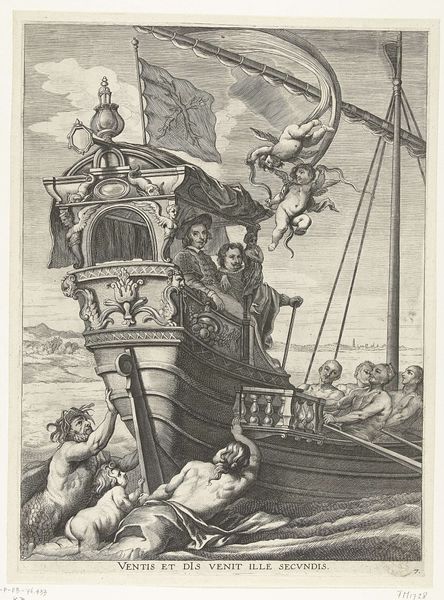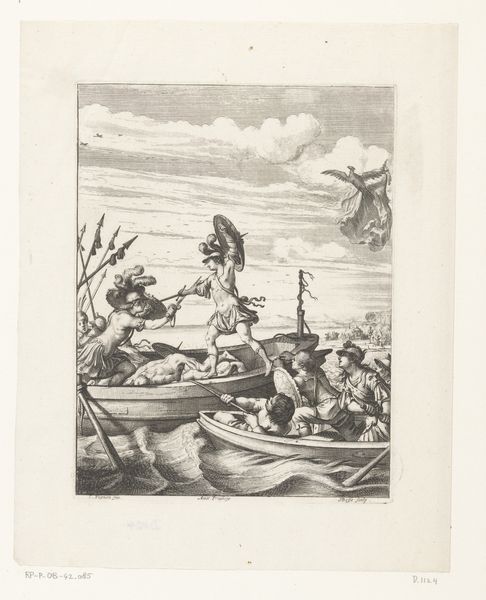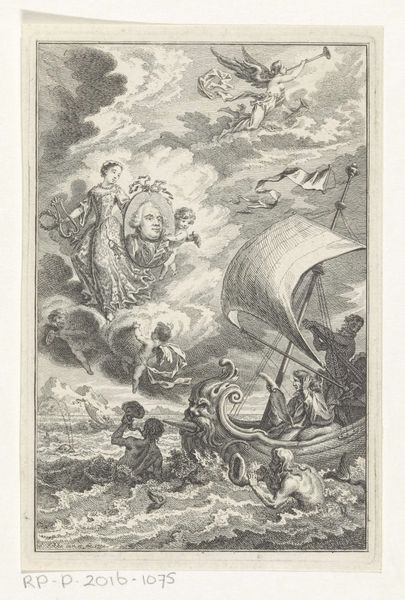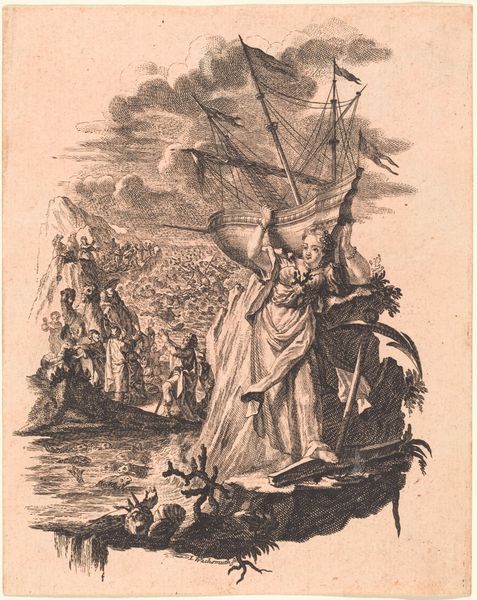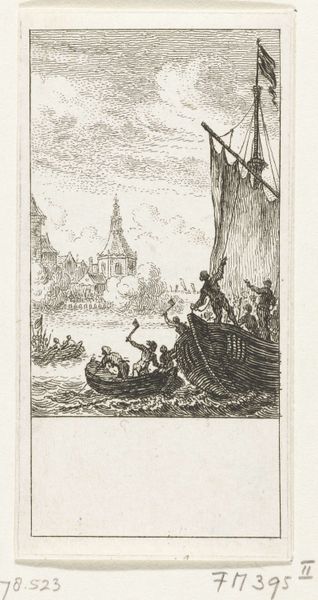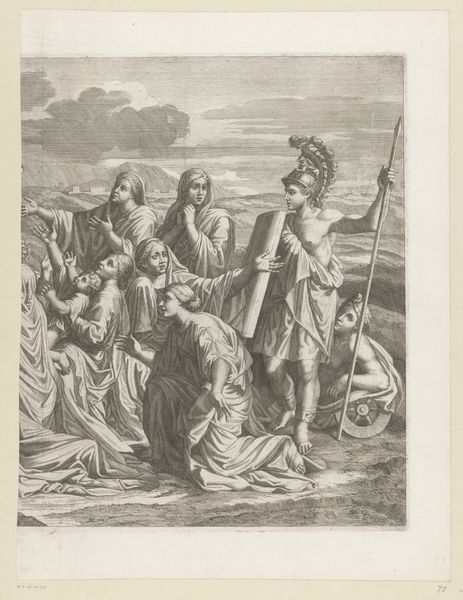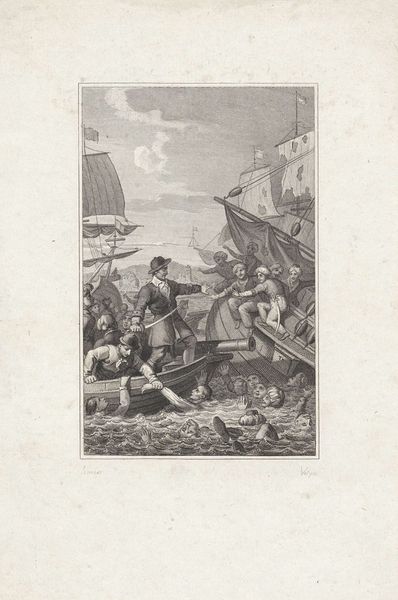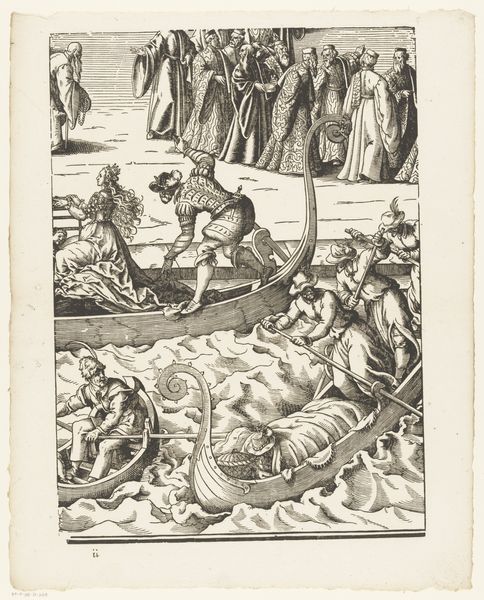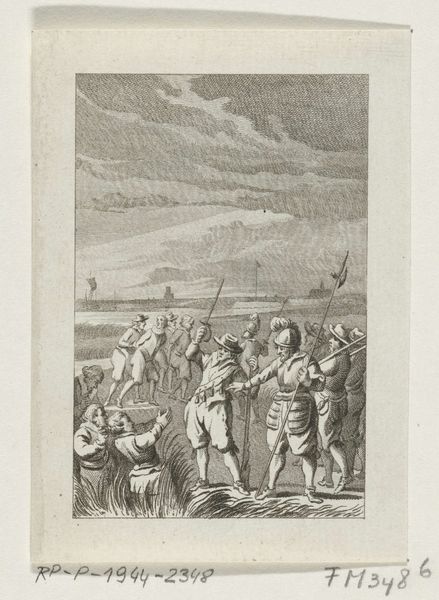
print, engraving
#
neoclacissism
#
narrative-art
# print
#
old engraving style
#
figuration
#
history-painting
#
engraving
Dimensions: height 203 mm, width 134 mm
Copyright: Rijks Museum: Open Domain
This print, made by Ludwig Gottlieb Portman, shows Caesar leading his army away from Italy. Look closely and you’ll see it’s an engraving, meaning the artist would have used a tool called a burin to carve lines into a metal plate. The ink settles into these lines and transfers to the paper when printed. The choice of engraving is significant, allowing for precise detail, which was a common practice to reproduce images on a mass scale. But it is the subject matter that is important here, and the way it links to labor and class. Here, we see Caesar, the commander, relatively idle, while the labor of rowing is left to the masses. This dynamic speaks volumes about the social hierarchies of the time, where power and privilege were often maintained through the exploitation of labor. The print invites us to consider the relationship between art, labor, and social context. By understanding the materials, the making process, and the socio-political context, we gain a deeper appreciation of the artwork.
Comments
No comments
Be the first to comment and join the conversation on the ultimate creative platform.
